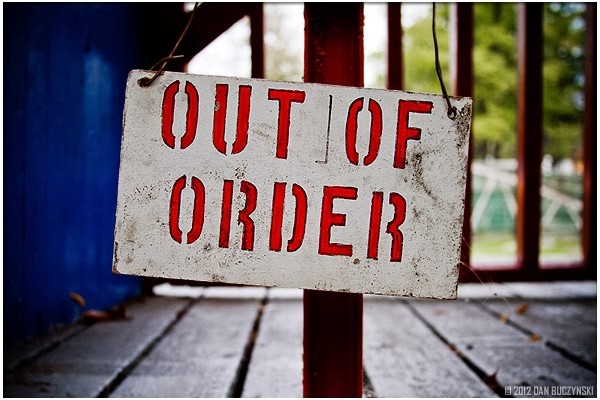Gospel Identity and Racial Harmony
#blacklivesmatter
Following the grand jury’s decision in the Eric Garner case, I added the popular hashtag to a post. Knowing how some of my white friends would respond, I waited. Sure enough: “All lives matter!” was the response, missing the point altogether. Of course, all lives matter. What white people don’t understand (and cannot know experientially), is what it’s like to feel that your race does not matter to people of other races. Indeed this is what the response (to the deaths of Trayvon Martin, Eric Garner, and Mike Brown) is all about.
The varied responses in the aftermath of recent incidents have clearly exposed the racial divide we still have in our country. We are not as far along as we thought we were. As a pastor, I see something that may be even more disturbing: the lack of Gospel identity among God’s people has been deeply exposed as well. It may be more disturbing because the appropriation of the Gospel is the only way to racial reconciliation. It’s time for followers of Christ to let their identity in Christ to displace their racial identity. Or as Bryan Loritts stated, “My Jesusness must always trump my blackness.”
The most recent racial challenges have given believers across our country the opportunity to show what we really believe about the Gospel. As those transformed by the Gospel, our response should be markedly different from those who have never tasted the grace of God. It should be evident that Jesus has actually changed our lives. The appropriation of the Gospel means that we really do believe that grace triumphs over all things; that listening precedes talking, and that being “right” (winning an argument) is not as important as loving others without condition. We actually live like Jesus, “full of grace and full of truth” (John 1:14).
How would Jesus respond in the midst of recent happenings? Living in response to the Gospel means that we live in light of what He’s already done for us. Romans 5:10 says, “For if while we were enemies we were reconciled to God by the death of His Son, much more, now that we are reconciled, shall we be saved by His life.” Reconciliation is the restoration of friendly relationships and of peace, where previously there had been hostility and alienation. If possible, it also includes the removal of the offense that caused the disruption of peace and harmony. This is what Christ has done. We must do the same, whenever possible. 2 Corinthians 5:19 says, “that, in Christ, God was reconciling the world to Himself, not counting their trespasses against them, and entrusting to us the message of reconciliation.” “Us” is us, those who claim to have been transformed by the Gospel.
The 2nd chapter of Ephesians serves as a field guide for racial reconciliation. Ephesians 2:14 says, “For He Himself is our Peace, who has made us both one and has broken down in His flesh the dividing wall of hostility”. This “dividing wall” was as much a racial divide as it was a religious one. Paul says that Christ Himself is the Answer, “and might reconcile us both (Gentiles and Jews) to God in one body through the cross, thereby killing the hostility” Ephesians 2:16. The power of the cross is still in effect today. He is mighty to save, to destroy hostility, and to reconcile all people to one another through His finished work on the cross.
For nearly 30 years, Jonathan Scott has been my best friend in ministry. Jonathan is African American and knows everything about me. Through the miles, we still connect monthly, talk about life, ministry, and how God is changing us. Race is not central to any of our conversations; the Gospel is. Jesus is. We love each other without condition and though we do not deny the color of our skin, the Gospel defines us and the friendship we share. Christ in us trumps all other identities.
The problem with many reading this post is that you agree with me in principle, but not in practice. Too many white people (and black people) would say they are not racists (who would admit that?), but they do not have close relationships with anyone of another race. Therefore, they never really get inside the mind and heart of someone of another race. If we do not know each other, how can we trust each other and how can we love each other? We could only do so theoretically and Jesus had much to say about those who claim to love, but can show no evidence of any love in action.
I believe one of the greatest opportunities for the Body of Christ in our day is to come together across racial boundaries for the common good of our cities and the world. Indeed, for the sake of the Gospel. If we go it alone, no one will believe us. If we come together – Blacks, Whites, Hispanics, Asians, etc. – then they will see that there is something greater that unites us, beyond the color of our skin. They will discover that it is Jesus.
I know of no other gathering in the metroplex that draws together the Body of Christ, across racial boundaries, like Movement Day Greater Dallas. I hope you’ll join me, Thursday, January 22nd, 2015 at the Kay Bailey Convention Center in downtown Dallas, for a historic gathering. My friend, Bryan Carter, pastor of Concord Church, and I will be leading a session on the role of the Church and racial reconciliation. We’ll also discuss next steps toward racial harmony for all believers, that will result in a Gospel movement across greater Dallas. Register here.
This will be a great way to kick off the new year! See you there.
Happy New Year!





